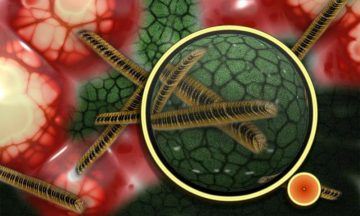Nathan Collins in Phys.Org:
 For ages, the best ways to treat cancer were surgery, radiation and chemotherapy, but in the last decade doctors have been working to harness patients’ own immune systems to fight cancer. One result is called chimeric antigen receptor T-cell therapy—CAR T for short—in which doctors remove T cells, which are central to the body’s immune response to disease, and modify them so they’re better prepared to attack cancer cells. CAR T has now been used to treat previously intractable cancers, including certain lymphomas that are the focus of the new study. Yet the treatment only works 30 to 40 percent of the time, said Andrew Rezvani, an assistant professor of medicine who is collaborating on the project. The rest of the time, CAR T’s effectiveness fades away over time or fails altogether.
For ages, the best ways to treat cancer were surgery, radiation and chemotherapy, but in the last decade doctors have been working to harness patients’ own immune systems to fight cancer. One result is called chimeric antigen receptor T-cell therapy—CAR T for short—in which doctors remove T cells, which are central to the body’s immune response to disease, and modify them so they’re better prepared to attack cancer cells. CAR T has now been used to treat previously intractable cancers, including certain lymphomas that are the focus of the new study. Yet the treatment only works 30 to 40 percent of the time, said Andrew Rezvani, an assistant professor of medicine who is collaborating on the project. The rest of the time, CAR T’s effectiveness fades away over time or fails altogether.
No one is exactly sure why that happens, but over the last decade or so there have been tantalizing clues that the microbiome plays a role. For example, researchers recently discovered that tumors grow at different rates in laboratory micepurchased from different suppliers, but only when the mice are housed separately. Housed together, the differences go away, suggesting a transmissible factor affects cancer progression. Add to that the fact that mice eat each other’s feces and it starts to look a lot like something in their guts has an impact on cancer, Bhatt said. To see whether the effect that’s been deduced in mice may also affect cancer progression in people, Bhatt, Rezvani and Tessa Andermann, an assistant professor of medicine at the University of North Carolina, are piggybacking onto two upcoming CAR T clinical trials at Stanford run by David Miklos, an associate professor of medicine, and Crystal Mackall, a professor of pediatrics and of medicine. With help from a Stanford ChEM-H seed grant, they’ll analyze blood samples and gather and analyze stool samples from about 100 people with a particularly hard-to-treat blood cancer, diffuse large cell B-cell lymphoma.
More here.
